Apple Q1 2011 by the numbers: $26.7B revenue, $6.43 EPS, $2.3B above Street consensus
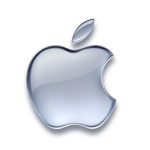
[Editor's Note: This was a live document from 4:45 p.m. EDT through 6:35 p.m., following Apple's earnings call.]
This afternoon, Apple delivered record holiday sales results, reporting fiscal 2011 first quarter earnings after US stock markets closed. Investor anticipation about the quarter seemed to hold back a major stock sell off. Yesterday, when US markets were closed, Apple CEO Steve Jobs revealed that he would be taking another medical leave -- for indeterminate amount of time. The sudden and open-ended medical leave raises concerns that Jobs might not return. What then for Apple?
IDC: Apple leads tablet market, Amazon e-readers

Today, IDC initiated coverage of the media tablet and e-reader markets, ranking Apple and Amazon leaders in their categories, respectively. Reporting on two separate product markets in one release is unusual for IDC. But it makes sense. So-called media tablets and e-readers will likely become one category in the not-so-distant future.
What's more interesting is IDC's tablet definition. In October, I observed that if iPad counted as a personal computer, Apple would likely meet or beat top-ranked HP in Q3 US PC market share. IDC has decided iPad isn't a PC, but Tablet PC would be one.
Microsoft's pitch for HTML5 logo has familiar ring

I'm not doing cartwheels over the new HTML5 logo, which reminds me of a superhero badge. It's bold, masculine and sort of orange, which will appeal how to the majority of web users? But the logo is a great idea, and it's big splash promotion -- some of that from Microsoft -- is exactly what the standard-in-progress needs right now.
Today in a blog post, Jean Paoli, Microsoft's general manager of interoperability, writes: "The logo links back to W3C, the place for authoritative information on HTML5, including specs and test cases. It's time to tell the world that HTML5 is ready to be adopted."
Apple's future without Steve Jobs won't be as bright
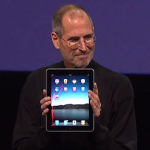
Today is an important, perhaps defining, day for Apple. As US stock markets open, investors will give their vote of confidence about the company's future. Yesterday, in a stunning and unexpected announcement, Apple CEO Steve Jobs took another medical leave, but this time with no set time period like the last one. "When, or perhaps that should be if ever, will Jobs return and what does it mean for Apple?" is question of the day. Later, after the stock market closes, Apple plans to announce holiday quarter earnings results.
"Strange they left it until a day that the stock markets are closed," observed Betanews reader Brian Butterworth. Commenter rrode74 made similar observation: I have zero doubt Apple announced this [yesterday] when US markets are closed. Apple manipulates even when Steve's health hangs in the balance. With the stock having climbed so high so fast, even with Steve it will hit a peak and come down. This could bring it down much faster." Apple opened at $327.05, or about 5 percent off the previous close.
What future does Apple have without Steve Jobs?
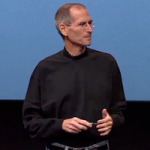
That's the question Mac commentators and fans will be asking today, with the announcement that Apple's CEO will take yet another medical leave. I want to ask the question of you. What future does Apple have without Steve Jobs? Please answer in comments or send e-mail to joewilcox at gmail dot com.
Jobs took his last medical leave two years ago this month. But there was a difference. Jobs planned for a six-month hiatus and returned during that time period, even after undergoing a liver transplant in April 2009. But today's announcement gives no time period at all, raising more seriously a question asked many times two years ago: Will Jobs return? It's one thing for Wall Street to see a finite medical leave, but something else when there is no end date in sight. Earlier fears ebbed as Jobs' return date approached. This time there is no end date.
Steve Jobs takes another medical leave from Apple
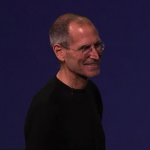
Two years ago this month, Apple CEO Steve Jobs left Apple for a six-month medical leave. Today, the company revealed that Jobs is going again, but for indeterminate time. The open-ended time period may unsettle some investors -- in a stock that has been high-flying for the better part of 18 months. Apple made the announcement during a US holiday, official observance of Martin Luther King, Jr.'s birthday, and a day before announcing holiday quarter earnings.
Jobs had survived a rare form of pancreatic cancer that is curable; he revealed his cancer fight in mid-2004. But by summer 2008, Jobs' gaunt appearance caused a rash of rumors about his heath -- that and how little time he spent on stage during Apple events. Jobs caused another stir in December 2008 by announcing he wouldn't give the Macworld 2009 keynote. About a month later, when he announced the medical leave, health emerged as one, if not the major, reason.
ChangeWave: 15% of AT&T subscribers are ready to switch, even without Verizon iPhone
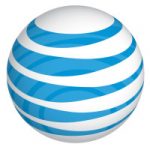
In less than 24 hours, three different analyst firms released mobile market findings or projections, just days after Verizon announced it would begin selling iPhone 4 in early February. ChangeWave joins Canalys and ComScore.
I want to thank Betanews reader Ilan Lev for pointing out the ChangeWave study, which I hadn't seen. However, as is typical of ChangeWave data, the blog post presenting it puts the emphasis in the wrong place. In a survey conducted before the Verizon iPhone announcement, 16 percent of US respondents said they would switch from AT&T to Verizon. However, that number isn't nearly as big as it seems. ChangeWave also generally asked the 4,500 respondents their switching intentions from all the major carriers. Fifteen percent of respondents said they plan to switch from AT&T within 90 days. From that perspective, the immediate benefit to Verizon is marginal at best.
ComScore: Verizon iPhone is likely bad for AT&T, probably not for Android

On the heels of Canalys' report that Android has nothing to fear from Verizon iPhone, ComScore released its own analysis. The question ComScore wouldn't answer is the one everybody seems to be asking: Will many AT&T customers jump carriers for Verizon iPhone? The answer may be moot, because of recent Verizon subscriber gains against AT&T in the market for smartphones.
AT&T's US smartphone market share is 38 percent compared to 27 percent for Verizon; and, of course, iPhone is a major reason. But Android upset the balance in 2010, the first full year after Verizon introduced the Droid line of smartphones. AT&T's smartphone share declined by 7 percent, while Verizon's grew by 4 percent.
Canalys: Verizon iPhone won't slow Android growth even the slightest
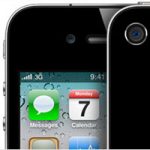
Today analyst firm Canalys asserted that Android handsets would grow at twice the rate of its major competitors during 2011. Canalys only named one, iPhone. The prediction comes two days after Verizon announced that it would carry iPhone 4 starting in early February. Since, and even before, numerous commentaries and punditries claimed victory for iPhone against Android. Absolutely not, says Canalys.
The research firm also said that fragmentation, while greater on Android than iOS, wouldn't stop the Google-created operating system's phenomenal growth. During third quarter 2010, 20 million Android handsets shipped, for 25 percent share of the global smartphone market, according to Canalys. During the first three quarters of 2010, Android shipments grew 1,000-percent year over year.
Sometimes commenters need to be put in their place
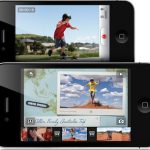
Early this afternoon, I was surprised to see that Machead John Gruber had posted "Clam Chowder: Joe Wilcox on Verizon and Apple." He referred to my Jan. 8, 2011 post: "Why Verizon won't let Apple announce iPhone." The headline played off the title to a TechCrunch post I rebutted: "Why Apple Will Let Verizon Announce An iPhone." I disagreed with reasons that put Apple solely in control of the Verizon iPhone announcement, which was then just rumored.
I normally wouldn't bother responding to Gruber's typical slash-and-attack pulpit (Hey, it's free speech and his right). But Gruber quoted a comment posted here at Betanews, and that warrants response because it misquotes or takes out of context my January 8th post. In fact, I wrote a response in comments, but before posting I realized just how long it was and decided to do a separate, full-post response instead. Hence, what follows is my response to commenter iphonedroidberry, whose identity I don't know. But the commenter's first Betanews login was two days ago. You can read iphonedroidberry's full comment following my response. I will address additional issues after the quoted comment.
Bieber.ly will maime your shortened URL with teen's image
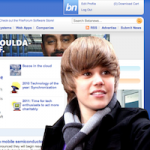
Surely today marks the end of Western civilization. The YouTube generation that spawned the Justin Bieber sensation has another place for the much-loathed (by adults - come on, you know you do) teen singer. Bieber now has a URL shortener, which does more than just shorten the URL. Bieber.ly also plasters a photo of the teen on whatever website it takes you to -- and every page you navigate to.
Normally I wouldn't post something like this, but surely somebody would want to comment about this marvel of brand marketing and ickiness. So I'm eager for some reader reaction to this one. Fire up your comments, folks.
Steve Ballmer finally shows who's in charge of Microsoft
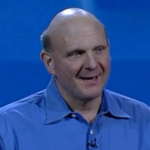
In his 11th year as chief executive and third outside the shadow of Chairman Bill Gates, Steve Ballmer is asserting surprising control over Microsoft. There were signs in 2010, but events over just the last week, particularly the public execution of Bob Muglia, show a different side of Microsoft's CEO. Competitors, you've been warned.
Over the last week, Ballmer did two things that spotlight this change in his leadership style, something already seen in other executive ousters (including Robbie Bach and Ray Ozzie in 2010). The first: Ballmer rightly resisted making tablets a major part of his Consumer Electronics Show keynote last week. The second: Muglia's demotion, and in real substance firing, as Server and Tools Business president.
It's official, iPad sapped Windows PC shipments during Q4 2010, but Macs more

Gartner and IDC both released fourth-quarter PC shipments this afternoon (PC here refers to Windows computers and Macs). While they didn't agree on the actual numbers or year-over-year growth, both analyst firms cited iPad and other media tablets (What? There are others?) as displacing PC sales. Well, hell, no wonder every Tom, Dick, Harry and Jane with a manufacturing plant, or the funds to outsource one, showed off a tablet during last week's Consumer Electronics Show.
A Betanews analysis finds that not only did iPad cannibalize computers sales but with greater impact on Apple than major Windows PC vendors.
Global IT spending will reach $3.6 trillion in 2011

Worldwide IT spending will rise by 5.1 percent this year to $3.6 tillion, according to Gartner. The new forecast increases year-over-year growth from 3.5 percent. The analyst firm released the data last week; some news is better kept on hold until supernovas like the Consumer Electronics Show or the Verizon iPhone pass by.
Richard Gordon, a Gartner research vice president, expressed cautious optimism. The forecast "is far from certain, given continued macroeconomic uncertainty," he said in a statement. "Favorable US dollar exchange rates" is one factor precipitating IT spending.
Who's switching from AT&T to Verizon iPhone? It's probably not you
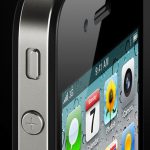
The rabble worshipping Apple's so-called Jesus phone are in for a surprise. The expected mass-exodus from AT&T to Verizon may be more myth than reality. Yesterday I asked Betanews readers "Would you buy Verizon iPhone?" and embedded a poll in that story and two others. At least among the tech-savvy people who read Betanews, the informal survey suggests that most will not switch from iPhone 4 on AT&T to iPhone 4 on Verizon. Nor are they likely to abandon Android phones. Prominent blogger or journalist posts, particularly the prognosticators of Android's doom, give a different impression. It's reality check time, baby.
Betanews readers give many reasons for sticking with what they've got, and for many it's not iPhone. Reasons range from satisfaction with their existing (usually Android) handset to concerns iPhone 4 is already outdated to there being no LTE support.
Joe's Bio
Joe Wilcox is BetaNews executive editor. His motto: Change the rules. Joe is a former CNET News staff writer, JupiterResearch senior analyst, and Ziff Davis Enterprise Microsoft Watch editor.
Ethics StatementBetaNews, your source for breaking tech news, reviews, and in-depth reporting since 1998.
© 1998-2025 BetaNews, Inc. All Rights Reserved. About Us - Privacy Policy - Cookie Policy - Sitemap.
